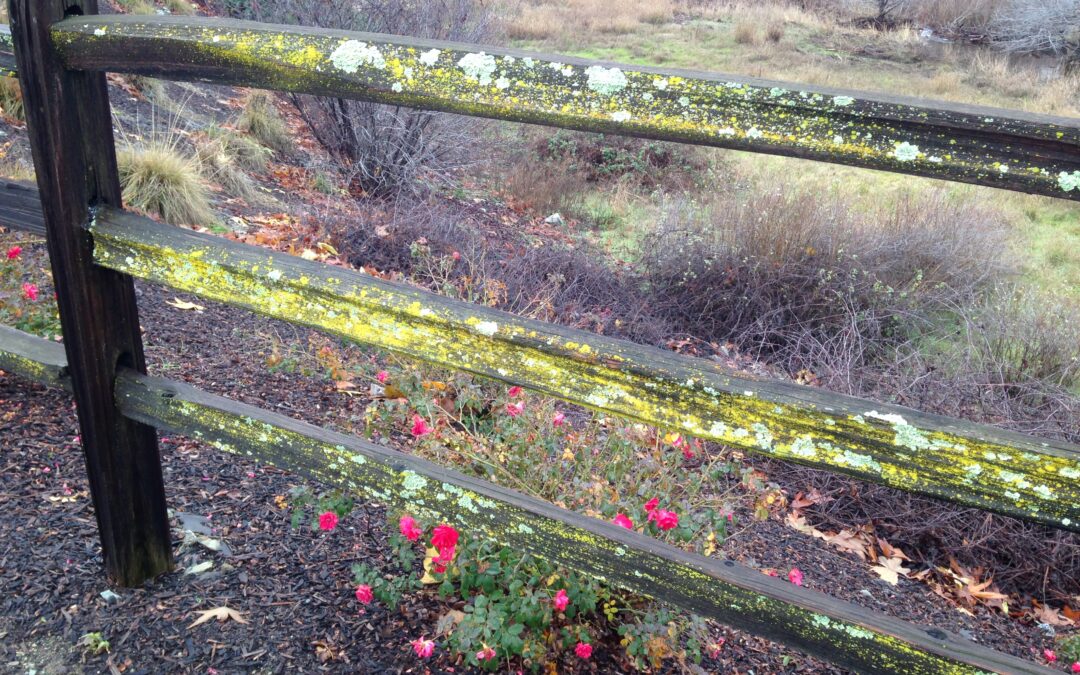I got stuck. Multiple times I tried to put words on this blog page about responding versus reacting when our boundaries have been pushed or challenged and each time ended with erasing every word I had written. I truly felt stuck to publish this post, especially after I put it out there on Facebook that I was writing my next blog about boundaries inquiring of all of you to share the good, the bad and the ugly of when your boundaries have been challenged.
Sharing my boundary challenge story with you seemed to me at first a way to encourage you with what I had learned in the experience. But what I came to realize as I wrote and erased for the third time was that those posts were another form of reacting to the stepping over of my fence. The fence I erected as a self-protection boundary to not let someone else’s needs make me do something I didn’t want to do.
What I Learned About Boundaries and Myself
“Boundaries are learned” according to Darlene Lancer, JD, MFT, and if you didn’t grow up with strong boundaries it is a challenge to know when to set them and how and when to respond when they are challenged. Because of my need to please I had a hard time erecting a boundary fence and an equally hard time protecting my fence because my need to be liked trumped my value to protect myself.
This is what I learned:
- Don’t be afraid to build your fence because boundaries are good for our well-being
- Expect that any fence you build could or will be challenged or pushed
- Expect that unless you communicate that you have erected a fence; boundaries are invisible to others
- Expect that others won’t be aware they have climbed over your fence unless you speak up
- Address the issue by responding firmly, speaking your truth in and with love and with courtesy
- Be patient as your fence could be pushed again especially if you receive pushback
Building Your Fences
This has been hard for me. I had the mindset (I know this is so dumb!) that because I had built the fence, there wouldn’t be any invasions of my boundary. Because I still wanted people to like me and protecting an invasion meant I would have to tell the person about the fence I had built and that fear overrode me building the fence. But you have to build them and just like anything you create there is an art to building your fences according to Lancer.
I had to learn in my anxiousness to erect a fence, that this was good for me and to not feel guilty about it especially if the person who invades my boundary doesn’t like it. Because if I didn’t protect my fence, the relationship was going to suffer as I would become resentful even pulling away from the relationship because of my weak emotional boundaries. It seemed easier to retreat than face the fear they would be mad at me and not want to be my friend. (Just writing this seems so silly!) A perfect case of reject first so you won’t be rejected (another topic for another post).
There is no easy way around building your fences. You just have to do it. You have to become more self aware of what you will and won’t do, what you will and won’t take responsibility for and most of all; leave the people pleasing behind. The people that need your boundary could be very comfortable building their own fences of what they will or won’t do and as much as you believe they will be hurt or mad at you (they might be), they will ultimately respect you and your boundary. If they don’t, that is good information for you to erect a permanent fence around that relationship.
Don’t be surprised by the pushback when you first build your fence. Until you have the conversation about your boundary, the person won’t even know you have built one until they challenge it and they read your non-verbals from your irritation or they hear your defensive tone. Here is where you will want to firmly, calmly and lovingly express your boundary of what you will or won’t do. This is good for you and your fence trespasser. And, just like any new relationship rule there will be a learning curve for everyone involved. Thinking this through in advance and how you want to respond will help you to not get defensive and react negatively to the fence that has been challenged.
Pay Attention to Your Triggers
I didn’t realize that when my fence was challenged, that was a trigger for me. It triggered my defensive posture and that is the exact reason why I never liked building fences in the first place because it meant I would have to protect them and that made me feel like I had to be a soldier.
Having my fence challenged especially after a conversation to explain my fence, made me mad. I felt disrespected and at times manipulated and that triggers my defensiveness. I immediately go into a battle mindset to defend my position. This may be needed in some cases where you are being manipulated and disrespected. But in most cases reacting in a defensive posture can be damaging to the relationship.
As a recovering people pleaser, I had to know my triggers so I could reframe my response very calmly and objectively to ensure that my fence was understood and that I would not allow future attempts to tear it down just to please the person so they would like me. Can I just say that this is very empowering and freeing!
Understanding the Boundary Pusher
When I asked for input from the Life Over Coffee Blog Facebook page I received some great things to consider:
Here is what C. Oliver had to offer:
What Works: prayer/being clear about my boundary/ communicating in love and not frustration/ not feeling “guilty”, or responsible for the persons reaction. A boundary should help the relationship move forward/forgiveness/changing my response vs wanting to change the person/ asking myself “what do I want out of this”?/ if person is not willing to walk with you in this, love from afar.
Doesn’t work: creating a barrier if the person doesn’t respect and or breaks the boundary/ not extending grace/ assuming the worst if behavior continues/ shutting the person out.
She went on to offer some great questions we could ask ourselves when our fence is challenged:
Does the person lack self awareness/insight? OR Do they willfully trespass your boundaries?
Asking these question might be helpful in knowing how to proceed: progress vs. distance
Grace to Respond
Learning to respond versus react when a fence boundary has been pushed or challenged requires increased self-awareness and grace. It will take time and you will probably have to work on it over and over again especially if the relationship is in your everyday life or if your boundary pusher lacks self awareness or has a willful intent to trespass as C. Oliver suggested.
“Gracious words are like a honeycomb, sweetness to the soul and health to the body.”
Proverbs 16:24
Building healthy relationships starts with building healthy fences and ends with responding calmly, with truth, speaking in love and extending grace to yourself and to the boundary challenger when your fence has be trespassed.
Thanks to my coaches who helped me discover how to respond and not react when my boundaries were challenged. Darlene, Becky, Chris and the best coach of all time, my husband Reggie! Love to all of you!




Recent Comments